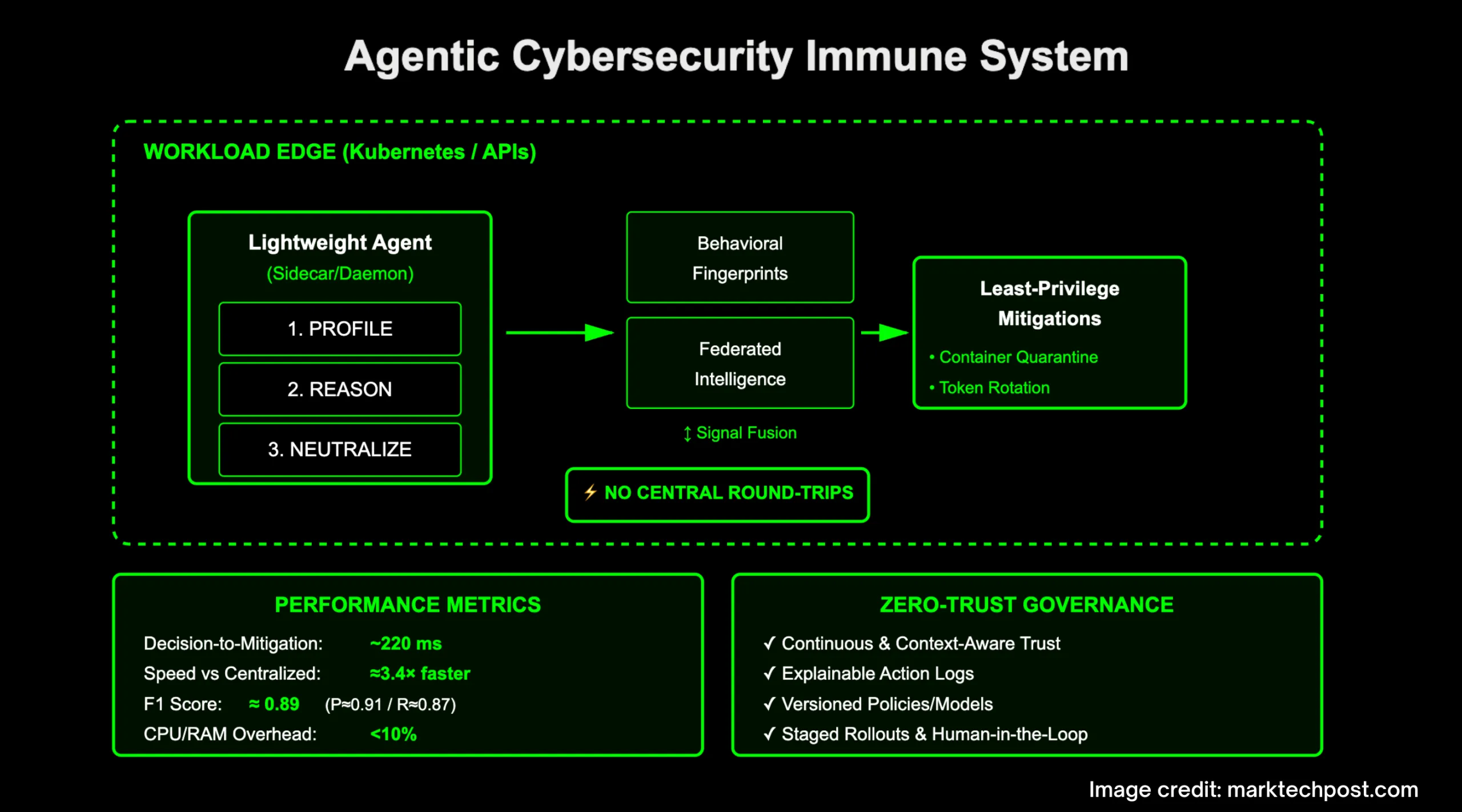
Revolutionary AI Agent Immune System Enhances Cybersecurity Efficiency
A groundbreaking research initiative led by a team from Google and the University of Arkansas at Little Rock has introduced an innovative approach to cybersecurity by developing an agentic "immune system". This system utilizes lightweight, autonomous AI agents that are colocated with workloads, such as Kubernetes pods and API gateways, to offer rapid threat containment.
Key Innovations
Unlike traditional cybersecurity methods that rely on centralized systems that process telemetry data, this new framework empowers each AI agent to learn local behavioral baselines. By doing so, these agents can evaluate anomalies and apply mitigations directly at the point of execution.
- Speed: The edge-first approach significantly reduces the decision-to-mitigation time to approximately 220 milliseconds, achieving a speed increase of about 3.4 times compared to centralized pipelines.
- Accuracy: The system has demonstrated an F1 score of approximately 0.89, indicating a high level of precision in identifying and addressing threats.
- Efficiency: With less than 10% overhead, this method ensures that system performance remains largely unaffected while enhancing security capabilities.
The Future of Cybersecurity
This advancement represents a significant leap forward in adaptive cybersecurity measures, allowing organizations to respond to live security threats more effectively. By utilizing federated intelligence and applying least-privilege mitigations, the AI agents are positioned to enhance the resilience of various cloud-native environments.
As cybersecurity threats continue to evolve, this research highlights the importance of integrating advanced AI solutions to protect critical systems. According to the researchers, the implementation of such technologies could redefine how organizations manage and respond to security incidents.
Rocket Commentary
The introduction of an agentic "immune system" by Google and the University of Arkansas at Little Rock marks a significant shift in cybersecurity paradigms. By enabling lightweight, autonomous AI agents to learn and respond to threats at the point of execution, this approach addresses one of the critical flaws of traditional centralized systems: latency in threat response. However, while the promise of reduced decision-to-mitigation times is compelling, it raises questions about the scalability and ethical implications of deploying AI in such a decentralized manner. As businesses increasingly rely on these innovative solutions, it is vital to ensure that they are designed with accessibility and ethics in mind, empowering users without compromising security or control. The industry must also consider how to maintain oversight and accountability in AI-driven responses, ensuring that the transformative potential of this technology does not come at the cost of increased vulnerability.
Read the Original Article
This summary was created from the original article. Click below to read the full story from the source.
Read Original Article